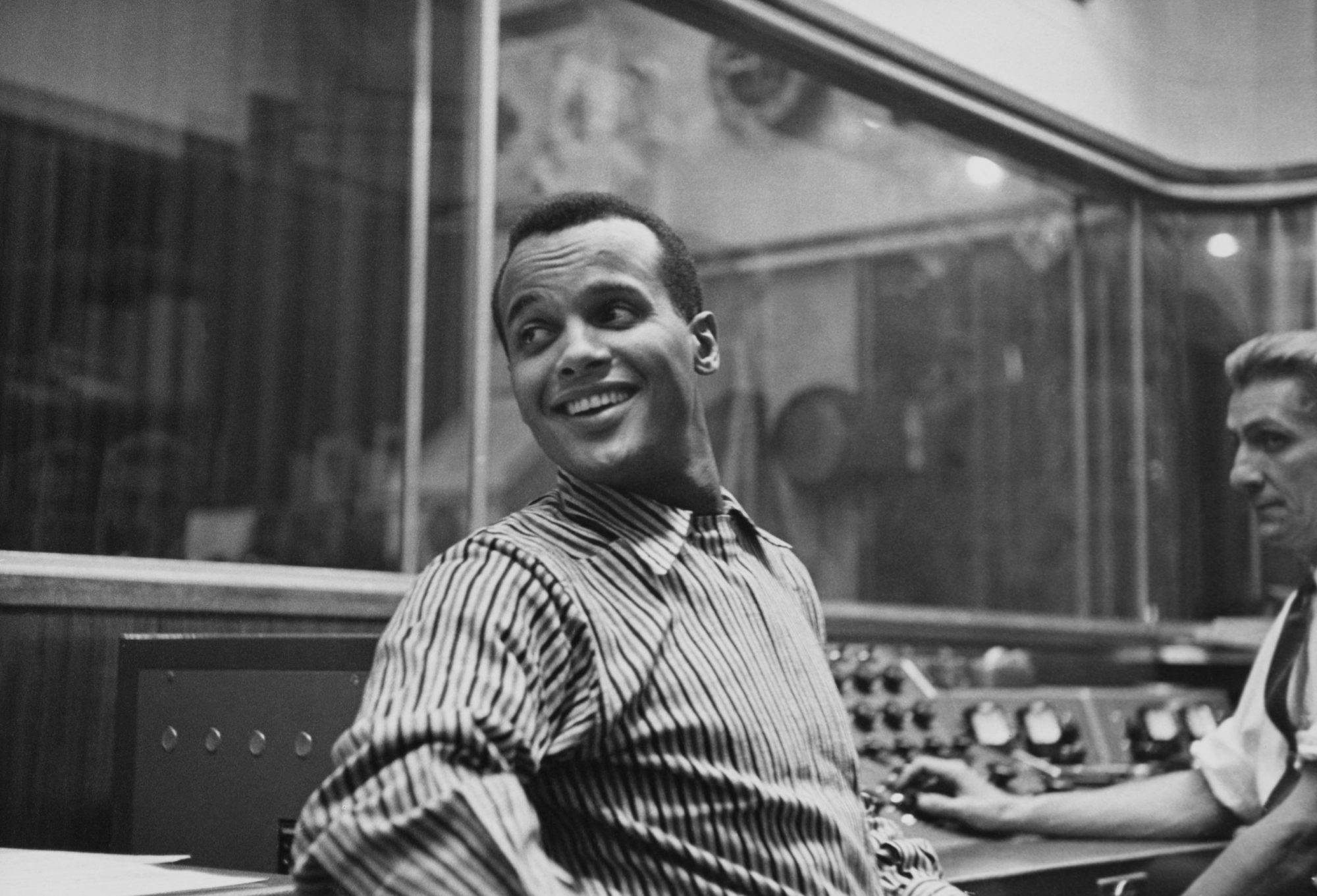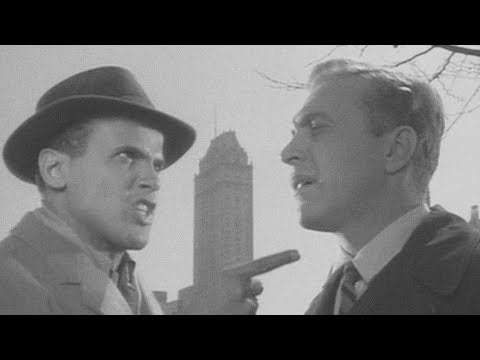A smooth velvet voice.
A voice that sang folk songs
From the shores of the Caribbean.
But Harry Belafonte was so much more than that.
He was born in Harlem, New York. 1927.
To parents from Jamaica.
Growing up, he lived in Jamaica with his grandparents for several years before returning to the US and joining the Navy to fight in World War II.
When he returned, he worked as a janitor.
Got into theater.
And began to sing to pay the bills.
The Black activist and singer Paul Robeson took him under his wing.
And Belafonte’s career took off.
You know this song. It was the top track on Belafonte’s hit debut record, Calypso.
That topped the charts for half a year.
And Harry Belafonte was transformed into the “King of Calypso,” a style of music which originated in Trinidad and Tobago in the late 1800s.
He sang folk songs. Caribbean songs. Pop songs. Spiritual songs. And songs of resistance.
His last studio album, in 1988, was a compilation of 10 protest songs against South African apartheid.
He acted, performing in more than a dozen movies throughout his career.
“I’m not a politician, I’m an artist, and if my art is done well, that in itself is a contribution.”
A contribution for change.
See, though Harry Belafonte was a great musician and actor, he was also, more than anything else, an activist.
A fighter against racism and oppression, in the United States and around the world.
“As long as there is racism, I’m gonna be on fire,” he once said.
“Racismo in its subtlest and its most evil sense has worked its way into the fiber and the hearts and minds of many men and women. And with this going on, it’s had an incredible influence on my own life. I was born in the ghetto. My mother was a domestic worker. My father was a seaman. And I grew up in the West Indies. My uncles and aunts were farmers. Under British exploitation.”
He joined the civil rights movement. He marched alongside Martin Luther King.
“To be a part of the movement that Dr. King led was the greatest moment of my life.”
He helped to fund civil rights organizing and groups.
He helped organize the 1963 March on Washington.
When Martin Luther King Jr. and other civil rights leaders were jailed,
Harry Belafonte helped to bail them out.
When he had a hard time renting an apartment in Manhattan, because he was Black.
He bought the building and helped other Black artists move in and find a home.
He was a true American patriot. Ever fighting for justice and equality.
Ever fighting to make the United States better.
He also denounced the US abroad. He demanded an end to the endless wars, apartheid, and the US blockade on Cuba.
Here’s just one clip from an interview he did with the CBC in 1967:
“I fought in the Second World War. I was told then and I fought with the knowledge that this was the war to end all wars and we were going to defeat fascism and mankind could turn its attention to the best of us in man. And now I come and my son is 10 years old, and I will arm him with everything I can, so he can be free of any primitive medieval concepts about false patriotism, about boundaries and the meaning of flags. Mankind is much bigger than all these primitive symbols. And I don’t want to see my boy with his face stuck in some rice paddy off in Vietnam, or off in some other land, protecting the interests of the establishment and trying to reward their greed with his life. I’m opposed to it.”
Harry Belafonte stood up for justice and against oppression throughout his life.
And he remained active into his ’90s, working for prison reform, denouncing the Iraq War, George W. Bush, Trump, and so much more.
Harry Belafonte passed away on April 25, 2023.
His work and his melodies sing on.
###
Hi folks. Thanks for listening. I’m your host, Michael Fox. Like so many others I am grateful to my parents to have raised me listening to Harry Belafonte. And I was even more grateful when I learned what an incredible person and activist he was…. Using his music and his success for good.
This is episode 25 of Stories of Resistance — a podcast co-produced by The Real News and Global Exchange. Independent investigative journalism, supported by Global Exchange’s Human Rights in Action program. Each week, we’ll bring you stories of resistance like this. Inspiration for dark times.
If you like what you hear, please subscribe, like, share, comment, or leave a review. You can also follow my reporting and support at www.patreon.com/mfox.
Thanks for listening. See you next time.
This is episode 25 of Stories of Resistance — a podcast co-produced by The Real News and Global Exchange. Independent investigative journalism, supported by Global Exchange’s Human Rights in Action program. Each week, we’ll bring you stories of resistance like this. Inspiration for dark times.
If you like what you hear, please subscribe, like, share, comment, or leave a review. You can also follow Michael’s reporting and support at patreon.com/mfox.
Written and produced by Michael Fox.
Links for some old clips of Harry Belafonte:
Harry Belafonte Interview on Activism Through Art (1958)
Harry Belafonte on racism, patriotism & war, 1967: CBC Archives | CBC
Harry Belafonte’s Best Crime Thriller? Odds Against Tomorrow (1959) | BlackTree TV
Harry Belafonte in Concert (Japan, 1960)








